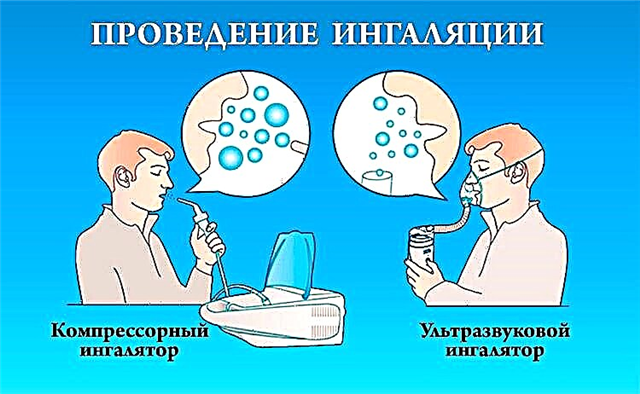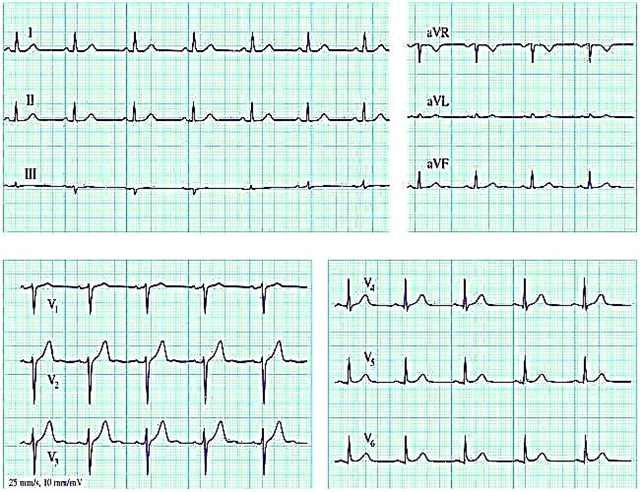Every adult at least once in his life noted pain in the heart or discomfort behind the breastbone in the form of compression, tingling. Most often, these symptoms signal us about problems with the cardiovascular system and require an appointment with a doctor, a thorough examination and treatment.
Traditional medicine methods for pain in the heart
 Traditional medicine often uses not only herbs for heart pain, but also their components: roots, flowers, fruits of plants. Medicines can be manufactured in various forms:
Traditional medicine often uses not only herbs for heart pain, but also their components: roots, flowers, fruits of plants. Medicines can be manufactured in various forms:
- Tinctures are alcohol-based or water-alcohol based. For preparation, 40% or 70% ethanol is used. Vegetable raw materials are infused for several days and filtered. Dosed in drops.
- The collection includes several types of dry plants in a crushed state.
- Infusions and decoctions are water extracts from one or a collection of several medicinal plants.
- Syrup is the preparation of plant materials in a thick sugar solution.
- Extracts are concentrated extracts from plants, they can be dry, liquid, thick.
Most often in traditional medicine, alcoholic tinctures, collections and infusions or decoctions made from them are used. Usually these medicines are taken orally, but they can also be used for baths (to relieve nervous tension, relax, eliminate vascular spasms).
The effectiveness of herbal medicine
 Not in all cases, when pain in the heart occurs, drug treatment is needed. Sometimes it is enough to modify the lifestyle, quit smoking and drinking alcohol, and a balanced diet. Correctly selected herbal medicine can also be very effective.
Not in all cases, when pain in the heart occurs, drug treatment is needed. Sometimes it is enough to modify the lifestyle, quit smoking and drinking alcohol, and a balanced diet. Correctly selected herbal medicine can also be very effective.
Nature is rich in medicinal herbs, with the help of which they treat pain in the heart area with folk remedies. In therapy, various parts of plants can be used - root, leaves, seeds, flowers. Also, use herbal preparations effectively. Herbal preparations have fewer side effects and can be used for a long time without much harm. But still, before using them, you also need to consult a doctor.
If one of the causes of pain is coronary artery disease and the formation of cholesterol plaques inside the vessels, you need to eat foods rich in vitamins A, E, B, C, omega-3 fatty acids. In addition, there are many medicinal plants that lower cholesterol:
- viburnum has an anti-sclerotic effect, strengthens the heart muscle;
- oats contain B vitamins, magnesium, calcium, its use improves fat metabolism;
- flax seeds are rich in omega-3 fatty acids.
 With a rapid heartbeat, herbs are used that reduce the heart rate, improve coronary blood supply:
With a rapid heartbeat, herbs are used that reduce the heart rate, improve coronary blood supply:
- hawthorn normalizes blood circulation, regulates heart contractions, dilates blood vessels;
- valerian has a sedative effect, improves coronary circulation, regulates the tone of the heart vessels;
- asparagus reduces blood pressure, slows down the heart rate, improves the strength of the heart.
When choosing herbs for the treatment of hypertension, it is worth considering different mechanisms of action on the pathogenesis of high blood pressure, for example:
- Melilot, motherwort, chokeberry berries have a pronounced hypotensive effect; plantain, viburnum, calamus root reduce pressure more moderately.
- The sedative effect is aimed at reducing nervous excitability, increasing stress resistance. Mint, lemon balm, linden blossom, chamomile have a sedative effect.
- Antispasmodics dilate blood vessels and, due to this, pressure decreases. Fennel, dill, anise, dandelion root are used for this purpose.
- Herbal diuretics remove excess fluid, relieve swelling and, as a result, reduce the volume of circulating blood. These include bearberry, milk thistle, horsetail, calendula, St. John's wort.
Herbal preparations such as cardiac glycosides deserve special attention. These include medicinal herbs like strophanthus, adonis, foxglove. Their reception increases the contractile force of the heart muscle, reduces heart rate, improves the efficiency of blood circulation in the myocardium by reducing its oxygen demand. When using these herbs, it should be remembered that they tend to accumulate effects and require a gradual dose reduction. Uncontrolled intake of glycosides can lead to serious complications: arrhythmia, worsening heart failure, decreased heart rate. Therefore, the drugs are dispensed in the pharmacy strictly according to the prescription.
Why is herbal treatment used for heart disease?
 There are a lot of reasons due to which pains appear in the region of the heart, and not all of them are associated with diseases of the myocardium. Most often, chest discomfort occurs in patients with coronary artery disease. The cause of pain is damage to the coronary vessels by atherosclerosis and, as a result, insufficient oxygen supply to the myocardium. The most common complaints in coronary artery disease: squeezing pain in the heart, shortness of breath, weakness, sweating. Also, the cause of pain can be a violation of the rhythm and conduction, which manifests itself in the form of extrasystole, episodes of tachy- or bradycardia.
There are a lot of reasons due to which pains appear in the region of the heart, and not all of them are associated with diseases of the myocardium. Most often, chest discomfort occurs in patients with coronary artery disease. The cause of pain is damage to the coronary vessels by atherosclerosis and, as a result, insufficient oxygen supply to the myocardium. The most common complaints in coronary artery disease: squeezing pain in the heart, shortness of breath, weakness, sweating. Also, the cause of pain can be a violation of the rhythm and conduction, which manifests itself in the form of extrasystole, episodes of tachy- or bradycardia.
Every year the incidence of hypertension is growing (blood pressure is above 13989 mm Hg). Often the disease is asymptomatic, but when the body's compensatory mechanisms are depleted, the following complaints appear: headache, dizziness, pain in the heart, tachycardia, flashing flies before the eyes.
In addition to problems in the work of the cardiovascular system, the cause of pain behind the sternum can be osteochondrosis of the spine and neuralgia (pain intensifies in a certain position of the body, on inhalation), shingles (damage to the ganglia and pain along the nerve, more often in the thoracic region), diseases of the esophagus (spasm, achalasia, tumors).
In most cases, it is necessary to prescribe various pharmaceuticals to regulate the heart rate, effectively control blood pressure. But treatment can always be supplemented with folk remedies for minor pain in the heart, which are used to strengthen the heart muscle and normalize the excitability of the nervous system.
Herbal medicine is especially widely used for functional disorders of the cardiovascular system, when there are no objective data on organ damage. For example, with VSD, which is accompanied by periodic pain in the heart or tachycardia, with rare episodes of a slight rise in blood pressure, chest discomfort after physical exertion without signs of coronary heart disease.
Conclusions
In nature, there are many medicinal herbs that relieve symptoms and improve the functioning of internal organs. Moreover, they are low-toxic, in contrast to synthetic tablets, have fewer side effects.
When using herbs for pain in the heart, you need to remember that they can be contraindicated in case of damage to other organs (with urolithiasis, pathology of the gallbladder), it is worth considering individual intolerance, the possibility of an allergic reaction. Phytotherapy will not be effective at all stages of cardiovascular diseases, so you should not self-medicate. If there are complaints from the heart, it is imperative to consult a doctor and be examined in order to make a rational final decision.



